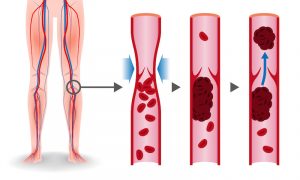Uncontrolled inflammation could precipitate the onset of strokes and other cardiovascular ailments as individual’s age. Therefore, it is important to take the necessary steps in time to avoid these health problems.
Inflammation Overview
Inflammation is a systemic process designed to help the body fight infections and other potentially detrimental ailments. The process is generated by the white blood cells, which are among the primary pathogen-fighting structures in the body.
In brief instances, inflammation is beneficial to the body because it can prevent foreign bodies from morphing into injuries or diseases. However, chronic inflammation can have serious repercussions inside the body and lead to a host of health problems.
Causes
The inflammatory process can be elicited by a number of different issues. As mentioned, systemic invasion by pathogens like bacteria and viruses is among the more common culprits. However, the problem can also be precipitated by autoimmune disorders, in which cells and tissues of the immune system attack the body’s cells, stress and the systemic infiltration of substances called free radicals.
These substances are the abnormal byproduct of environmental toxins and allergens. Additionally, inflammation can be precipitated by engaging in detrimental lifestyle habits such as the consumption of an unhealthy diet and partaking is potentially hazardous vices like cigarette smoking and excessive alcohol intake.
Impact
Over time, inflamed tissues can precipitate pain and numerous diseases, some of which can be serious or life threatening, like diabetes and cancer.
The Connection With Strokes and Other Cardiovascular Illnesses

When such an event takes place inside the brain, a stroke can ensue. If not promptly treated, the brain cells and tissues of stroke victims gradually die. Strokes often lead to significant disability and possibly death. Should blood vessel ailments occur in and around the heart, heart attacks could ensue. Damaged heart muscle could additionally lead to severe disability and possibly death.
Preventing Systemic Inflammation
Naturally, preventing the inflammatory process will not be possible at all times. However, doing so may prevent the problem from becoming chronic and potentially health impacting. Fortunately, there are several actions individuals can take that may reduce existing incidents or prevent future ones:
Processed, frozen, and canned goods contain potentially detrimental substances like salt, preservatives and a host of other chemicals known for stimulating the inflammatory process. These items should be avoided or eaten sparingly. Additionally, there are products touted as being anti-inflammatory foods. Such products include green vegetables, tomatoes, fish, legumes, nuts, various fruits and olive oil.
Chronic exposure to stress often releases hormones that can contribute to the inflammatory process. While avoiding stress entirely is not viable for most people, identifying and partaking in stress-relieving actions is critical. These can include exercise, deep breathing exercises, or an enjoyable hobby.
Sleep is a critical anti-inflammatory action. The immune systems of persons who chronically receive limited amounts of sleep are more susceptible to weakening than the immune systems of well-rested individuals. Health professionals and sleep experts suggest that middle-aged adults obtain anywhere from seven to nine hours per night.





